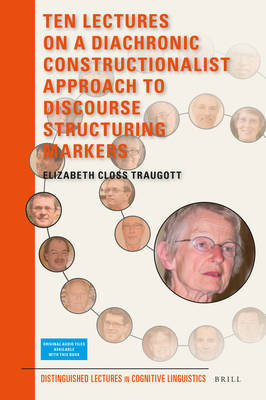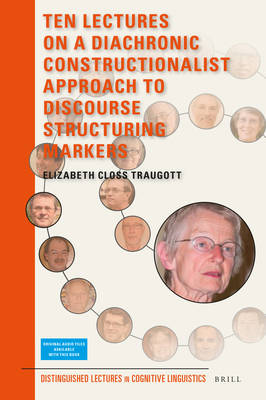
- Afhalen na 1 uur in een winkel met voorraad
- Gratis thuislevering in België vanaf € 30
- Ruim aanbod met 7 miljoen producten
- Afhalen na 1 uur in een winkel met voorraad
- Gratis thuislevering in België vanaf € 30
- Ruim aanbod met 7 miljoen producten
Zoeken
Ten Lectures on a Diachronic Constructionalist Approach to Discourse Structuring Markers
Elizabeth Closs Traugott
€ 190,95
+ 381 punten
Omschrijving
To date little work has been done on pragmatics within cognitive linguistics, especially from a historical perspective. The lectures presented in this volume give the first systematic account of how pragmatics can be incorporated into cognitive linguistics using a Diachronic Construction Grammar perspective. The author combines detailed study of the historical development of Discourse Structuring Markers like all the same, after all and by the way and propose ways in which to model them. A number of topics are addressed including what a usage based approach to language change is, differences between innovation and change, how to think about analogy and networks, how combinations of Discourse Structuring Markers like now then became a unit, and whether clause-initial and -final positions are constructions.
Refinements of Diachronic Construction Grammar are proposed and tested.
Refinements of Diachronic Construction Grammar are proposed and tested.
Specificaties
Betrokkenen
- Auteur(s):
- Uitgeverij:
Inhoud
- Aantal bladzijden:
- 228
- Taal:
- Engels
- Reeks:
- Reeksnummer:
- nr. 27
Eigenschappen
- Productcode (EAN):
- 9789004506909
- Verschijningsdatum:
- 27/01/2022
- Uitvoering:
- Hardcover
- Formaat:
- Genaaid
- Afmetingen:
- 155 mm x 235 mm
- Gewicht:
- 507 g

Alleen bij Standaard Boekhandel
+ 381 punten op je klantenkaart van Standaard Boekhandel
Beoordelingen
We publiceren alleen reviews die voldoen aan de voorwaarden voor reviews. Bekijk onze voorwaarden voor reviews.











